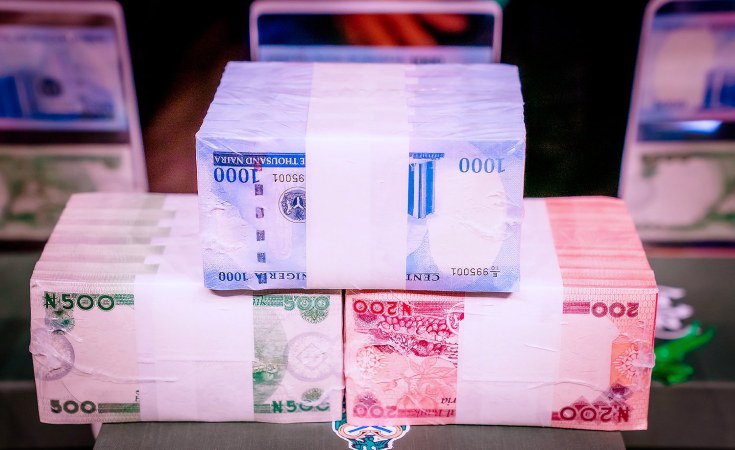Abuja, Nigeria — The Central Bank of Nigeria has raised the maximum weekly limit for cash withdrawals after a public uproar over the caps it announced two weeks ago. The new limit is five times higher than the initial cap for individuals and ten times more for companies. The bank announced the limits to rein in excess cash and promote cashless payments, but critics say it could stifle millions of small businesses.
The revised Central Bank withdrawal limits were announced in a circular released by the bank Wednesday.
The limit for individual withdrawals was raised from $225 to $1,125, while the limit for corporate entities was raised from $1,100 to $11,000.
Under the directive, any withdrawal above the set limits must be approved in advance in writing by the financial institution from where the withdrawal is to be made.
The CBN also lowered its processing fee for withdrawals above set limits.
But many people like Salisu Umar Garu, a former chairman of the Abuja Zone 4 traders association, say even the new limits will be difficult for businesses yet to be fully integrated into the online banking system.
"The minimum amount, it cannot buy anything for anybody," he said. "Maybe the CBN should have come to ask us for advice, like if I do this how will it affect the country and the economy."
The new cash withdrawal limits take effect January 9.
The central bank unveiled newly designed 200-, 500- and 1,000-naira bills in late November in a bid to combat counterfeiting, hoarding, corruption and other crimes.
Authorities also said the action will promote more online-based transactions.
Citizens also have until the end of this month to exchange old bills for the new tender.
Isaac Botti, a finance analyst at the Centre for Social Action, said the policy, if properly implemented, will help stabilize Nigeria's economy and prevent vote-buying during the February elections.
"Issues around corruption, insecurity, election manipulation and vote-buying, will all be addressed," he said. "It is important that we recognize that when policies are developed to put the economy in the right direction, it could be painstaking but it needs consistency."
This week, the Nigerian House of Representatives summoned CBN governor Godwin Emefiele after initially asking the CBN to suspend the cash withdrawal limits.
Botti was skeptical of the lawmakers' claims to be protecting small and medium-sized enterprises, or SMEs. He thinks the lawmakers want the limits withdrawn so they can access large amounts of money they've stashed away.
"I'm beginning to wonder why some persons, including the lawmakers, are saying it will affect SMEs," he said. They're crying for themselves. This sudden love and protection for SMEs is borne out of their own selfish interests".
The CBN says it's working with money agents in rural areas to help pull in old notes before their expiration date.
But citizens say the changeover time for the newly unveiled bank notes is too short and that unless authorities extend the deadline, up to 40% of Nigerian citizens without access to banks could lose their savings.


